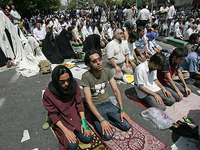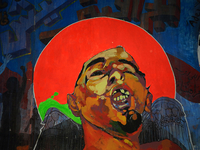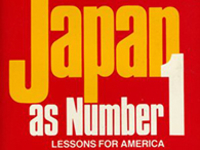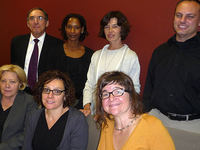GD 3.3 - May 2013
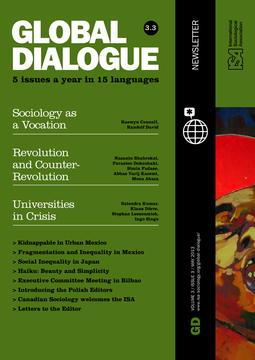
Global Dialogue is available in multiple languages!
Select the language to download the issue.
Editors:
Michael Burawoy.
Associate Editor:
Margaret Abraham, Tina Uys, Raquel Sosa, Jennifer Platt, Robert Van Krieken.
Managing Editors:
Lola Busuttil, August Bagà.
Consultants:
Abigail Andrews.
Media Consultant:
Annie Lin, José Reguera.
Consulting Editors:
Izabela Barlinska, Louis Chauvel, Dilek Cindoğlu, Tom Dwyer, Jan Fritz, Sari Hanafi , Jaime Jiménez, Habibul Khondker, Simon Mapadimeng, Ishwar Modi, Nikita Pokrovsky, Emma Porio, Yoshimichi Sato, Vineeta Sinha, Benjamín Tejerina, Chin-Chun Yi, Elena Zdravomyslova.
REGIONAL EDITORS
Arab World: Sari Hanafi , Mounir Saidani.
Brazil: Gustavo Taniguti, Juliana Tonche, Célia da Graça Arribas, Andreza Galli, Renata Barreto Preturlan, Rossana Marinho, Angelo Martins Júnior, Lucas Amaral.
Colombia: María José Álvarez Rivadulla, Sebastián Villamizar Santamaría, Katherine Gaitán.
India: Ishwar Modi, Rajiv Gupta, Rashmi Jain, Uday Singh.
Iran: Reyhaneh Javadi, Shahrad Shahvand, Saghar Bozorgi, Najmeh Taheri.
Japan: Kazuhisa Nishihara, Mari Shiba, Kousuke Himeno, Tomohiro Takami, Yutaka Iwadate, Kazuhiro Ikeda, Yu Fukuda, Michiko Sambe, Takako Sato, Yuko Hotta, Yusuke Kosaka, Yutaka Maeda, Shuhei Naka.
Poland: Mikołaj Mierzejewski, Karolina Mikołajewska, Krzysztof Gubański, Zofi a Włodarczyk, Adam Mueller, Patrycja Pendrakowska, Emilia Hudzińska, Justyna Witkowska, Konrad Siemaszko, Julia Legat.
Romania: Cosima Rughiniș, Ileana-Cinziana Surdu, Lucian Rotariu, Angelica Helena Marinescu, Adriana Bondor, Alina Stan, Andreea Acasandre, Catalina Gulie, Monica Alexandru, Mara Șerban, Ioana Cărtărescu, Telegdy Balazs, Marian Mihai Bogdan, Cristian Constantin Vereș, Ramona Cantaragiu, Elena Tudor, Monica Nădrag.
Russia: Elena Zdravomyslova, Anna Kadnikova, Elena Nikiforova, Asja Voronkova, Ekaterina Moskaleva, Julia Martinavichene.
Taiwan: Jing-Mao Ho.
Turkey: Aytül Kasapoğlu, Nilay Çabuk Kaya, Günnur Ertong, Yonca Odabaş, Zeynep Baykal, Gizem Güner.
Ukraine: Svitlana Khutka, Olga Kuzovkina, Polina Baitsym, Mariya Domashchenko, Iryna Klievtsova, Daria Korotkyh, Mariya Kuts, Lidia Kuzemska, Anastasiya Lipinska, Yulia Pryimak, Myroslava Romanchuk, Iryna Shostak, Ksenia Shvets, Liudmyla Smoliyar, Oryna Stetsenko, Polina Stohnushko, Mariya Vorotilina.
GD 3.3 - May 2013
Editorial
Universities in Crisis
As I write Raewyn Connell is on the picket line at the University of Sydney, giving expression to her vision of sociology as a vocation laid out in this issue. She joins the strike of academic and non-academic staff at her university who are protesting the erosion of tenure, casualization, and threats to academic freedom – processes affecting most universities, elite and non-elite, across the world.
As universities turn from a public good to a private good, so they turn to selling their products to clients (students, states, corporations, or whoever they can attract). The competition for clients is intense and so universities brand themselves by trying to climb national and global rankings. Academics may resent these rankings but, often of their own making, they compete on their terms and with enthusiasm. This means writing not just for English-language journals, but for internationally recognized journals, i.e. the national journals of the US and England that frame questions, issues, methodologies in their own local ways. Sociologists from the South, but not only from the South, are often drawn away from the urgent problems facing their own countries.
Few have the resources, the courage or even the interest to buck the system. So we must salute the German Sociological Association for boycotting the national rankings, reported here by three sociologists from the Friedrich-Schiller-University in Jena. At the same time, we shouldn’t forget that most universities don’t even appear in the rankings, forming a large class of “untouchable” universities. Satendra Kumar examines what this means in Uttar Pradesh (India) where the university makes money by selling rights of accreditation to colleges which offer spurious degrees paid with state-subsidized fees. Public funds are thereby funneled into the private pockets of politicians who run the college as a political machine. That’s at the other end of the world hierarchy from the University of Sydney, but the pressures are similar.
There are, of course, more conventional pressures on the university. Nazanin Shahrokni and Parastoo Dokouhaki describe the backlash orchestrated by the Iranian state in response to increased enrollments of women students. Many of Iran’s Green protestors in 2009 (see articles by Abbas Varij Kazemi and Simin Fadaee) came from the ranks of these college dissenters. Not surprisingly, the Iranian state maintains a careful watch over its universities.
In all these cases the membrane separating university and society is disappearing. We cannot pretend to be outside society. So we are forced to take sides – are we with the rationalizers and marketeers or with their critics and dissenting publics? Writing on the vocation of sociology, Randy David demonstrates that it is possible to sustain a critical and public engagement even in the politically inhospitable Philippines. Still, it takes courage to wade into terrifying worlds such as the normalization of violence described by Mona Abaza for Egypt and Ana Villarreal for Mexico. People may not want to hear us, but that’s no reason for silence.
Michael Burawoy, editor of Global Dialogue
Global Dialogue can be found in multiple languages.
Submissions should be sent to globaldialogue@isa-sociology.org.





